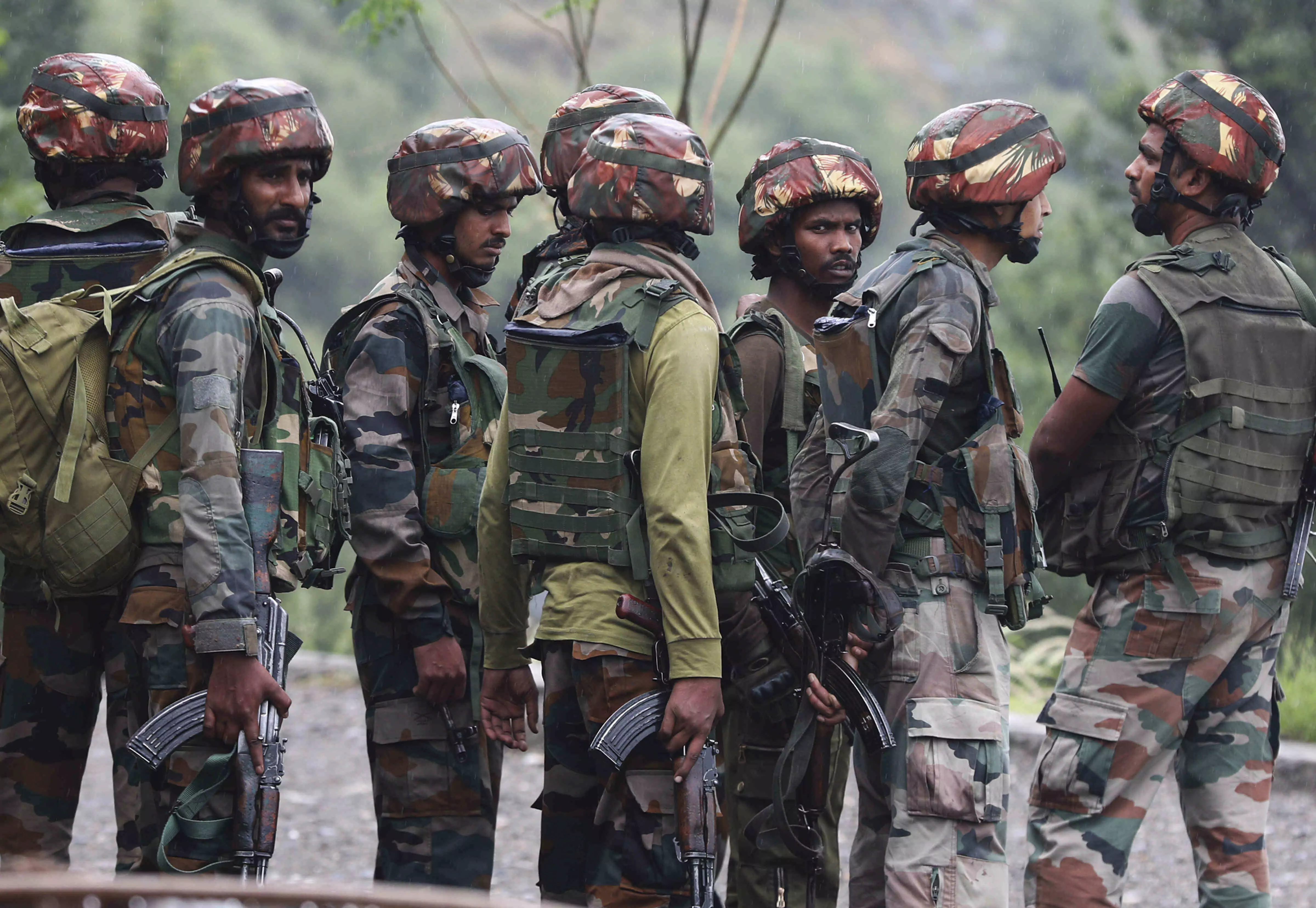Futile misadventures
The intensified terror attacks in Jammu & Kashmir, ostensibly at the behest of ISI, are unlikely to gain anything for turmoil-stricken Pakistan, as the broader public opinion favours India

It would seem that, desperate from its earlier failures to strike terror, the notorious Pakistani intelligence agency, the Inter-Services Intelligence (ISI), has embarked upon intensifying fresh terror assaults in Kashmir. Crucially, its focus has now shifted to the Jammu region, as seen in the most recent attacks in Kathua and adjacent areas. One had thought that after the tough measures taken by Indian security in the aftermath of the Pulwama attack of 2019, most of the Pakistani-sponsored terror groups were marginalised. However, the latest indications point toward a stark revival of terror attacks surely emanating from Pakistan.
The ongoing development shows how desperate Pakistan is amidst its own domestic problems getting out of control, while India, on the other hand, shows robust growth, a sense of political stability, and dynamic international acceptance by countries like Russia, the Commonwealth of Independent States (CIS), Afghanistan, the Muslim world, and several other important states.
Security experts, in the meantime, reckon that the Pakistani ISI is trying to thwart the upcoming elections in Kashmir by unleashing fresh terror attacks and putting India on the defensive. This was particularly demonstrated during a recent attack on an Indian Army convoy in Kathua, in which five Indian brave hearts sacrificed their lives. The same set of experts believes that this ambush was carried out by a well-trained armed force now shifting such activities across the Pir Panjal to the Jammu region from the Valley. According to credible media reports, this year alone, there have been at least six major incidents in the Jammu region, including the killing of nine innocent people in Reasi in a terror assault on a bus carrying pilgrims.
The Supreme Court's decision to hold elections by September 30 this year could possibly be the reason that the terrorists and their sponsors across the border have intensified their activities to disturb the tranquillity. Targeting the Army is obviously an attempt to demoralise the highly spirited Indian Army under the new Chief of Army Staff (COAS), who had visited the area barely a few days before the terror attacks were carried out.
Here, it would be interesting to mention that in the recently concluded parliamentary elections in India, voter turnout in the region stood at 58.6 per cent, thought to be the highest in over three decades. It is also incumbent upon the authorities not only to meet the Supreme Court deadline but also to ensure the continuity of the political process in J&K, which also includes holding elections within a given time frame. Against this backdrop, any Pakistani attempt to disturb the status quo is a well-thought-out blueprint being crafted at the ISI headquarters in Rawalpindi. The Indian intelligence and security agencies need to up their antenna and beef up the intelligence machinery through human intelligence and other technological means to foil the terror designs emanating from Pakistan.
Meanwhile, public opinion in India holds that there can be no diplomatic breakthroughs with Pakistan under the shadow of violence and terror, with innocent Indian civilians in J&K and Army personnel being targeted. Hence, for its own economy and security as well as for the larger cause, Rawalpindi and Islamabad need to give up their support for terror as a means of politics and policy.
According to former Indian High Commissioner to Pakistan, Sharat Sabharwal, there is a much bigger problem on the Pakistani side. It results not only from the traditional adversarial posture of its establishment but also from the tight corner that the then Imran Khan government, grouping for an answer to India’s August 2019 move, pushed Pakistan into by suspending trade and calling upon India to reverse the move for any bilateral engagement. The sharp political polarisation in recent years, with an incarcerated but popular Khan pitted against the Army-led establishment, has made a climbdown from this stand extremely difficult without a face-saver. Thus, trade with India remains banned despite the pressure from a large segment of the industry to resume it. PML(N) leader Nawaz Sharif sent a conciliatory message on Prime Minister Modi’s re-election. But he is not in charge, and in any case, the final say on the matter is with the army. There is little indication, at least in public, of Army Chief Asim Munir’s thinking on the subject. Unless they are on the same page, no tangible results are possible.
Summing up, it can be safely stated that Pakistan is also deeply frustrated by the intermittent and mysterious killings of several of its terrorists strongly considered to be involved in previous terror attacks in India. Also, it is in despair over its abject failure to contain the Tehreek-e-Taliban Pakistan (TTP) terror attacks on various infrastructure in the heart of Pakistan, with Baluchistan and Karachi included. This is doubly frustrating for the Pakistani security establishment due to its glaring inability to repair ties with its western neighbour Afghanistan, despite its initial 'bonhomie' starting nearly four years ago.
With diplomatic isolation by a large segment of the Islamic bloc who are seen closer to India, Pakistan seems hell-bent on focusing its activities on J&K, mistakenly thinking it is the same old vulnerable J&K. Times have changed, and so has public opinion in the region. It calls for Pakistan to refrain from wading into a theatre where it can never succeed.
The writer is a retired IPS officer, Adviser NatStrat, and a former National Security Advisor in Mauritius. Views expressed are personal



